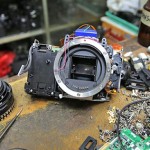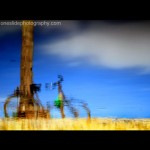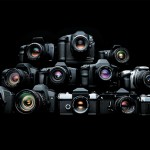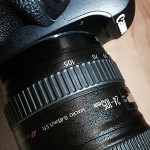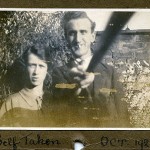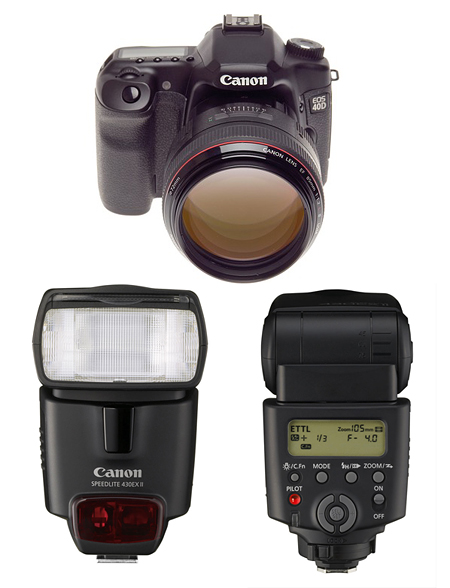
An age-old question that may make the beginner photographers wonder: “Which should come first, buying a wide-aperture lens or buying a flash for photographing in low lighting?”
On one hand, a fast wide-aperture lens may be more important because it can be more often used when photographing in low-lit indoors or to achieve good bokeh when photographing outdoors.
On the other hand, flash may be more important because with however wide an aperture, a lens may still have a hard time in photographing low-lit indoors. Also, flash can also be used to achieve fill-in when photographing outdoors.
So then which is right? Well, both answers is actually right. Fast lenses and external flash has their own advantages and disadvantages in their function in assisting you as the photographer in shooting in low lighting. The following are a few things to consider before deciding on which to buy.
Fast, wide-aperture Lens
Lenses with wide apertures are great for photographing in low lighting conditions. With these lenses you can achieve a more natural and lively photographs. Plus, using a combination of a camera and fast lens is more practical than having to lug around a camera, lens, and flash. You can also achieve beautiful bokeh with a wide aperture.
But this doesn’t mean this type of lens isn’t without its faults. Though using wide apertures mean a faster shutter speed in low lighting, there are instances when the shutter speed will not be fast enough to sharply capture your image. To compensate, you may have to up your ISO which in turn makes
Also, utilizing available light in low-lighting conditions may not be a good solution, especially if the main light source is a brightly colored red, yellow, or blue lights. Even if you’ve adjusted your White Balance of the camera, your result will differ from the actuals because of the camera sensor‘s limitations. What often end up happening is you’ll get an unnatural shade of skin color.
Using a wide aperture also means you’ll be getting a shallow Depth of Field. This means you’ll have a hard time clearly depicting every one in a photo group. Then there’s also the expensive price of these wide-aperture lenses that you’ll have to take into consideration.
External Flash
The disadvantages of a fast lens can really be remedied by a flash. For instance, you won’t need to push the ISO to a high setting to get accurate lighting when photographing in low light. You can still get a fast shutter speed when using a flash and you won’t have to worry about blurry photos. Also, you need not worry of inaccurate skin tones of your subjects that may be caused by an off color ambiance. You can also achieve deep DOF when taking group photos because you can still utilize a narrow aperture. A flash also varies in price and can be less expensive than purchasing a wide-aperture lens.
But then there are times when a flash wouldn’t be the right choice. For instance, there are events like in a play or orchestra concert where flash photography is prohibited. Sometimes flash can also make your photo feel flat and non-dimensional, especially if you’re photographing with the flash facing forward towards your objects. Using flash to produce great photographs will need additional skills (read my other posts on flash photography), and you will surely need practice. Flash photography also requires more strength and energy because you’ll be lugging around extra pounds with all the extra gear.
Conclusion?
In the end, the priority depends on the need and conditions you’ll encounter as a photographer. The above points are meant to help you consider which one applies more to your daily needs.
Lenses as a priority in indoor photography
You’ll need wide-aperture lenses more if you often photograph in events like orchestras or theater plays. You should also hold off on that flash purchase if your camera is already equipped with a built-in flash (even though its function of course can’t compare to the function of an external flash). Buy a wide-aperture lens if you don’t really photograph wide group shots or you have no need of color accuracy when photographing indoors.
Flash as a priority in indoor photography
You’ll need flash more than a wide-aperture lens if you often photograph in documenting weddings or indoor group photos. This is because those types of photos need even lighting and a high shutter speed to avoid capturing blurry objects. You’ll also need a flash if you want a natural color tone on your object when photographing then in low lighting. Flash is also for you if your camera isn’t equipped with a built-in flash.
Sure, it’s best that you have both. But sometimes budget hinders you from getting what you want. You can compensate by getting the one you’ll need and use more often. Or, you can buy a fix lens with a wider aperture that’s available on the market at a relatively affordable price like the Canon 50 mm f/1.8 or Nikon 50 mm f/1.8. You can also purchase 3rd party-branded flash equipment at a considerably less price than its original-branded counterparts.
Recommended Product:
